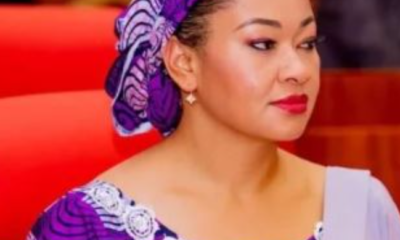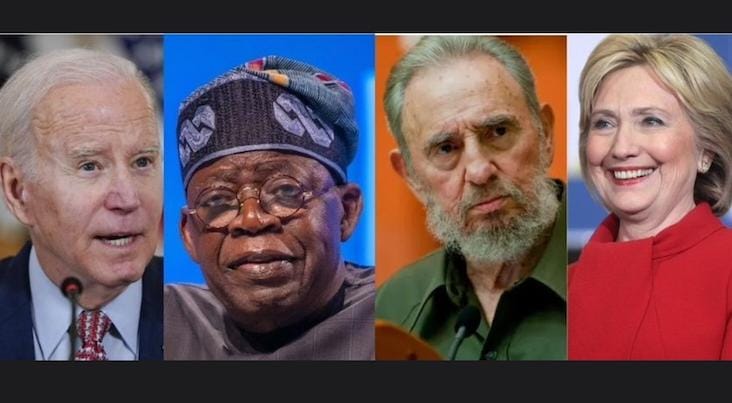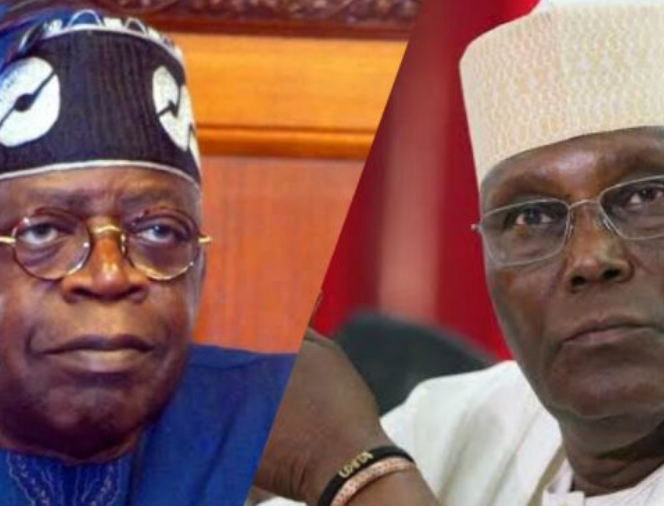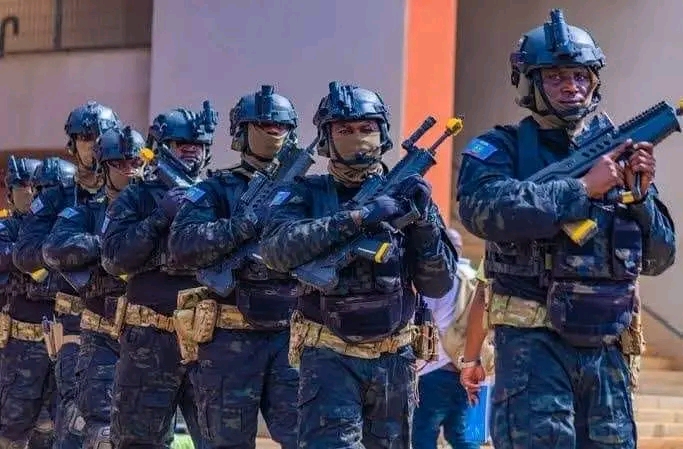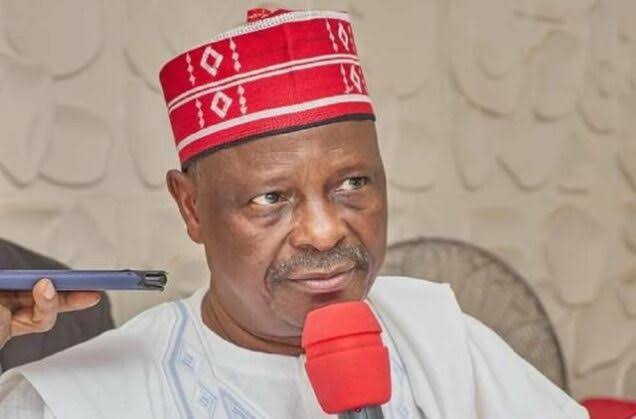National News
Democracy Day: Highlights of Tinubu’s national broadcast
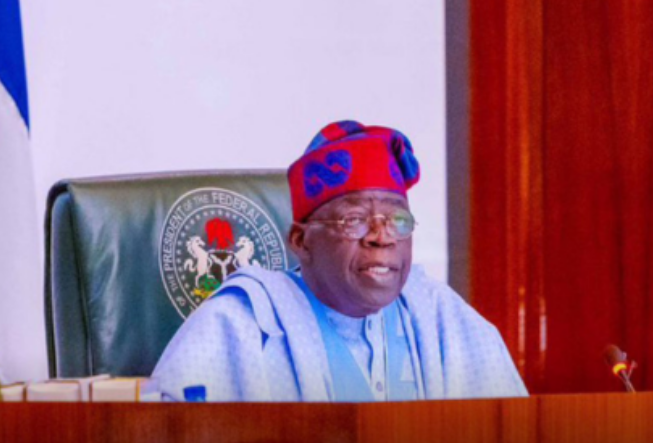
President Bola Tinubu addressed the nation in a special broadcast on Wednesday, commemorating the 25th anniversary of Nigeria’s democratic journey, a milestone that signifies a quarter century of continuous democratic rule and a testament to the country’s commitment to democratic governance.
During his national broadcast, President Bola Tinubu reflected on the country’s journey thus far, paying tribute to the pioneers and heroes of Nigeria’s democracy, while also outlining his administration’s vision for the future.
The key Takeaways From The Full Speech:
Celebration of Democracy:
Tinubu marked the 25th anniversary of uninterrupted democratic governance in Nigeria, reflecting on the sacrifices made by many to achieve and sustain it.
Honouring Past Heroes:
He paid tribute to individuals who played crucial roles in Nigeria’s democratic struggle, including Chief MKO Abiola, General Shehu Musa Yar’Adua, and others.
Commitment to Democratic Values:
Tinubu emphasised that democracy is more than periodic elections; it’s a way of life that includes freedom, liberty, and the resolution of differences through non-violent means.
Economic Reforms:
He acknowledged the economic hardships faced by Nigerians due to necessary reforms aimed at creating a more balanced and resilient economy, reducing dependence on oil revenues.
Dialogue and Cooperation:
Tinubu highlighted his administration’s approach of negotiating with labour unions over issues like the national minimum wage, favouring dialogue over conflict.
Future Vision:
He pledged to continue working towards economic democracy and ensuring that Nigeria moves forward on a path of progress and inclusiveness.
Call to Action:
Tinubu urged Nigerians to stay committed to democracy and work together towards a brighter future for the nation.
Democracy Day in Nigeria was moved to June 12 to honour the significance of the June 12, 1993 presidential election.
This election, widely regarded as the freest and fairest in Nigeria’s history, was won by Chief MKO Abiola.
However, the military government at the time annulled the results, leading to widespread protests and a protracted struggle for democracy.
From May 29 to June 12
Many consider June 12 a pivotal moment in Nigeria’s democratic journey.
In 2018, then-President Muhammadu Buhari officially changed Democracy Day from May 29 to June 12.
This change was made to recognise the sacrifices of those who fought for democracy, including Abiola, and to commemorate the struggle against military rule that ultimately led to Nigeria’s current democratic governance.
The date now serves as a symbol of Nigeria’s commitment to democracy and the enduring spirit of its people.
-
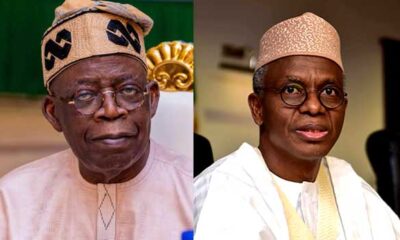
 Politics1 day ago
Politics1 day agoEl-Rufai backs Tinubu’s 2027 re-election
-
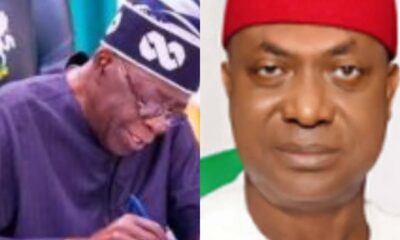
 Politics1 day ago
Politics1 day agoIkoh sure of Tinubu’s victory in 2027, sends message to Peter Obi
-
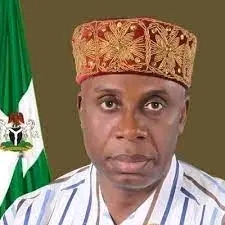
 Politics1 day ago
Politics1 day ago2027: New political group emerges, appoints Ameachi, Imoke to negotiate coalition
-
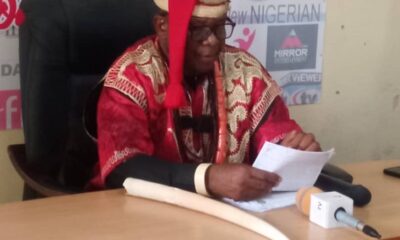
 Business1 day ago
Business1 day agoNHA faults multiple taxation on members, asks FG to harmonise taxes
-

 Entertainment1 day ago
Entertainment1 day agoTears flow as little boy mistakes father’s funeral for birthday party
-
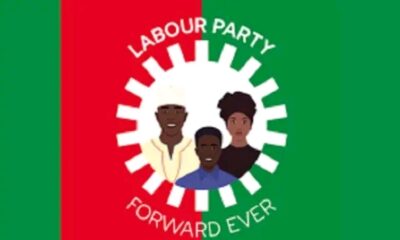
 Politics1 day ago
Politics1 day agoLP national chairman dumps party for APC
-
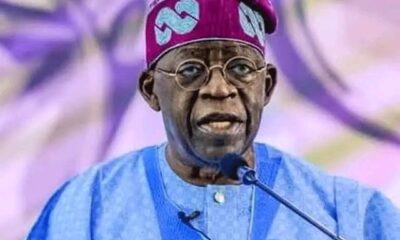
 Politics1 day ago
Politics1 day agoBreaking: APC chieftain rejects Tinubu’s automatic ticket
-

 Entertainment2 days ago
Entertainment2 days agoHow I was urged to abandon Jesus for fame — Popular Nollywood actress reveals


